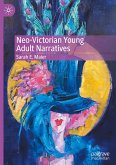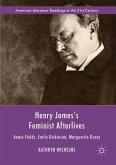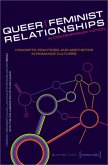This book explores the extraordinary proliferation of novels based on Henry James's life and works published between 2001 and 2016, the centenary of his death. Part One concentrates on biofictions about James by David Lodge and Colm Tóibín, and those written from the perspective of the key female figures in his life. Part Two explores appropriations of The Portrait of a Lady, The Turn of the Screw, and The Ambassadors. The book articulates the developments in biographical and adaptive writing that enabled millennial writers to engage so explicitly with James, locates the sources of his appeal, and explores the different forms of engagement taken. Layne analyses how these manifestations of James's legacy might function differently for knowing versus unknowing readers, and how they might perform the role of literary criticism. Overarching themes include ideas of queering, the concern with seeking redress, and the frustrated quest for origin, authenticity, or 'the real thing'.
Bitte wählen Sie Ihr Anliegen aus.
Rechnungen
Retourenschein anfordern
Bestellstatus
Storno








